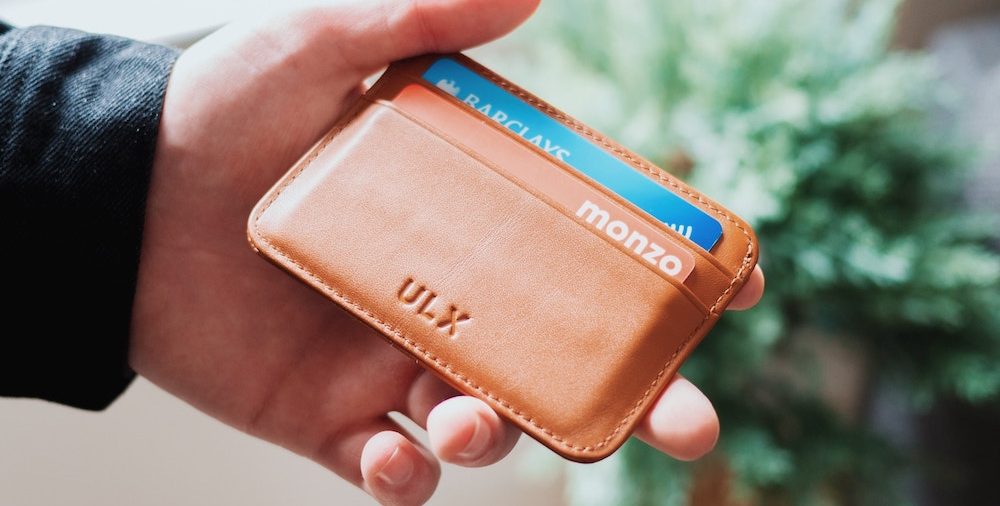During my time as a financial blogger, I’ve learned that for some people, their credit score is of super importance to them. It’s a lot of what they think about when it comes to their finances and it’s a source of stress and concern for them. I hear where they’re coming from; a bad credit score can be quite debilitating and restrictive in a society where credit plays such an important role. Bad credit can limit you from buying a house, renting an apartment, getting a credit card, and even potentially getting a job if they run a background check and look at your score. Tacked along with this, there are a lot of sleazy back alley type operations that promise to ‘erase’ your bad credit or ‘help it jump 100 points in a month’. One of my friends was looking into such a scheme and it involved some guy opening a merchant credit line in my buddy’s name and then paying it off for him…had scam/fraud written all over it! Scammers and fraudsters know that some people are desperate to improve their score and will take advantage of such folks in their time of need. As always, if something seems too good to be true, i.e. erasing bad credit or making it jump in a short period of time, it probably is.
As I know a good credit score is very important to some folks, I thought I’d do a post with some practical pieces of advice on how to actually improve yours. According to a study on credit score conducted by rental website RENTCafe.com, rental applicants approved for an apartment in 2017 had an average credit score of 650 nationwide, with many large cities requiring a higher average. The average credit score of applicants who are approved for rent in Boston is 737, the highest score in the 50 largest U.S. cities.
Now that you understand how high you need to improve your credit score, check out these practical tips that will take a few months if not a year but you know it’s safe and will get the job done right. As an added bonus, by following these tips you’ll probably get your finances in better order and adopt some good habits along the way!
Before we jump in, I did want to briefly review what a credit score is and how it’s calculated. If you’re looking for more details, check out this other post I wrote. The actual method to compute your score is proprietary but the following is an approximation of how your score is computed:
- 35% payment history. Make your payments on time and your score will go up. Miss a payment or consistently pay late and your score will decrease.
- 30% outstanding debt. How much of a balance are your carrying on your credit card? While some credit card debt is normal, the lower the amount the better. Keep an eye on your credit card debt and try your best to keep it low.
- 15% length of history. How long have you had your credit card? Paying your bill on time and keeping your balance low for a longer time will look better than someone who has just opened up their first card.
- 10% inquiries and new accounts. Hard inquiries are initiated when a lender runs your credit score. Your credit score will slightly decrease when your score is checked. The logic here is that someone who is having their credit checked frequently probably is shopping around to find a lender that will lend them the money – i.e., probably not the ideal candidate. On the other hand, a soft inquiry is when you check your own credit score and you are always welcome to do that. Opening up new accounts will temporarily cause your score to take a dip but it should increase with good credit history.
- 10% types of credit. Someone who has demonstrated good credit history throughout buying a house or car as well as by using credit cards will have a lot more good history to prove that they are creditworthy. Having just a credit card is good, but having more types of credit is a plus.
Make sense? Before you’re going to be able to improve your credit score, you’re going to have to understand how it’s calculated. Now let’s jump into some tips for how you can improve your score.
Make payments on time, all the time. The biggest portion (35%) of your credit score is payment history. Each month, your credit call bill will come due and you’ll have 15-20 days to make a payment. You don’t have to pay the balance in full, although if you don’t, you’ll have to pay interest on what you don’t pay, but you are required to make the minimum payments. Missing a payment won’t just negatively affect your credit score, it’ll also incur late fees, and have more interest piling on. So – even if you can’t pay in full, make sure you’re making at least the minimum payment each month.
Improve your utilization. Outstanding debt makes up 30% of your credit score. The credit reporting agencies look at the utilization ratio to calculate your score, which is the percentage owed vs. percentage you could borrow. Therefore, there are two ways that you can improve your score here – either by increasing your credit limit, or by paying down some of your balance. Both would decrease your utilization ratio and improve your score.
Increasing your credit limit may not be the easiest thing to do, as it’s totally at the discretion of your credit card company. Usually credit card companies re-evaluate on your anniversary each year, so if you’ve had your card for at least a year, you can call to see about getting an increase. Normally if you’re in good standing they’ll do it anyways. You can always call at anytime to ask, but you’re not super likely to get an increase. Alternatively, you could try to get another credit card and see if you’re approved. However, if you’re score isn’t super great you may not be able get approved and having more credit might be dangerous if you’re not great at managing expenses. Within your credit card account under the personal information, definitely be sure to update any changes to your income. Hopefully most job anniversaries you’ll get a raise, and be sure to update your personal info with that information. Showing you earn more money can help increase your chance of getting additional credit extended your way.
Paying down debt is also probably easier said than done but that’s another solid option to improve your utilization ratio. Try to decrease some of your other spending (i.e. eating out, random social outings) and use that extra cash to pay down some of your credit card debt. One other tip; your credit card company will report your activity to the credit bureaus when the period ends and your statement comes out. If you’re able to, make your payment earlybefore the statement comes out, that way your balance will be $0 and you’ll have the full utilization (i.e. no debt, full credit limit available) of your credit.
Keep those old cards around. 15% of your score is based on the length of credit history. The longer you’ve had a credit account (i.e. a credit card the better). While I’ve found in my personal life that a good credit utilization will help improve a credit score more, if you’re considering closing an old card that you’ve had for a few years, perhaps consider against it. Keep those old cards active by putting a few charges on it each month, and then pay it off in full each month.
Exhibit good behaviors over time. Your credit score is meant to be a holistic picture of your credit worthiness. Miraculously next month you’re not suddenly going to be super worthy of credit, and it’ll take time. One of the earliest folks I was working with had a score in the mid 500’s and after about a year of making on time payments and paying down debt, his score was then in the mid to high 600’s. Great increase! Don’t be discouraged with a low credit score that doesn’t seem to increase. Understand that it’ll take time and remind yourself that it’s a journey! Make a few positive changes each month and learn to be patient while you improve your credit score!


 Personal Finances are certainly top of mind for many of us. If you're looking to get serious about improving your financial situation, we've got lots of great materials all over this site! Additionally, we realize that there's a lot of noise out there, and so we created PERSONAL FINANCIAL GUIDES focused on topics with all the info you need, and without any of the noise/ads/clickbait.
Personal Finances are certainly top of mind for many of us. If you're looking to get serious about improving your financial situation, we've got lots of great materials all over this site! Additionally, we realize that there's a lot of noise out there, and so we created PERSONAL FINANCIAL GUIDES focused on topics with all the info you need, and without any of the noise/ads/clickbait.